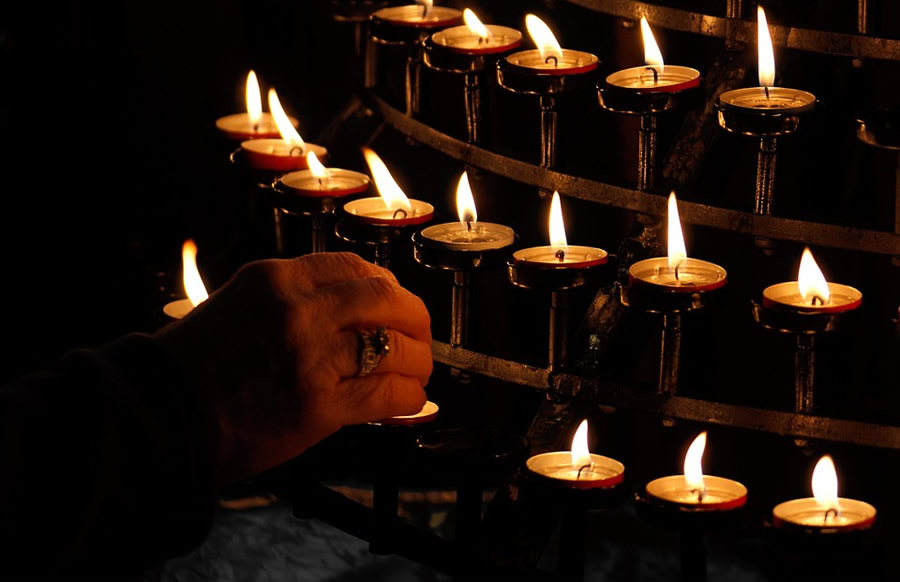
Remembrance and Prayer
by Rev. Gabriel Baltes, O.S.B. | 11/03/2024 | A Message from Our PastorDear Parishioners,
For many centuries Catholicism has set apart the month of November as a particular time to ponder the mystery of death and to pray for those who have already been embraced by this inevitable mystery that awaits us all. Frequently I am asked, Why should we pray for the dead? for as Fr. Ronald Rolheiser once quoted one of his students as saying, If the person we are praying for is in hell, then we can’t help them, and if they are in heaven then they don’t need our help. Rolheiser’s answer to the question, Why pray for the dead? is, For the same reason we pray at all: we simply need to.
We know that our prayers are not intended to manipulate God or to change God’s mind. We are not praying for the dead hoping that God will reconsider their fate and grant them the reward of heaven rather than the eternity of hell. Nor are we praying for the faithful departed in order to hasten their time in purgatory or bring them some refreshment during this time of painful purgation. (They are hardly “poor souls” as they were formerly called. In many ways they are better off than we are.) Only God knows when it is the right moment for them to make that final transition to heaven.
I once heard a true story that I believe sheds some light on the mystery of purgatory. A mother had lost her son during the Vietnam war. His body was never recovered which naturally intensified the pain of her loss. A year later, her doorbell rang one afternoon and when she opened the door, her son, whom she believed was dead, was standing there. Her immediate response was to close the door and walk away. While the other family members gave entrance to the son, the mother herself retired to another room for over an hour. Was she disappointed that her son was not actually dead? Of course not! Was she not delirious with joy to see her beloved son alive standing before her very own eyes? Eventually she will be. But the reality at that moment was that this mother was not prepared to see him. She was not in a place, psychologically, emotionally or spiritually to grasp what was so overwhelming and too good to be true because she had closed the door to the relationship that they once had in this world. When suddenly, without warning, her son came back into her life, she needed time to step away and prepare to once again welcome this marvelous gift.
Perhaps this is one way we might understand purgatory – as a way God gives us to prepare ourselves for the unimaginable grandeur of his glory. Rather than being a place of torment, restitution and punishment for sins committed in this life, purgatory is a place of hope and joyful anticipation for the eternal life of heaven – the life we have longed for and that God has always desired, as we are told in 1 Timothy 2: 3-4, God wants all people to be saved and come to the knowledge of truth.
So one answer to the question as to why we should pray for the dead, is that it is a practical way we have of staying in communion with them sharing in their joyful anticipation for heaven. This teaching flows directly from the fundamental Christian doctrine of the Communion of Saints, a doctrine we profess each Sunday when we pray the Creed that follows the homily. This November, besides fervently praying for all who have died, we might spend time reflecting on this teaching of the Communion of Saints and realize that we who are alive are a part of this communion and that the dead are truly not far from us at all.
BACK TO LIST